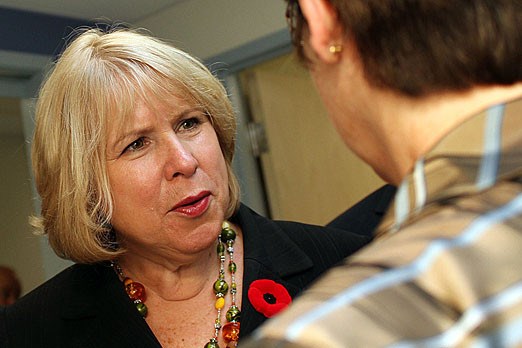The province has given another responsibility to the Local Health Integration Network in an effort to trim Ontario’s multibillion-dollar deficit.
Minister of Health and Long-Term Care Deb Matthews announced Monday a shift to the province’s health-care system. Matthews told reporters that the change was to help deal with demographic challenges and help trim Ontario’s budget, now $16 billion in the red.
In order to cut some costs, family health care will fall under the responsibility of the 14 regional LHINs.
“We can’t keep spending our health dollars the way we used to,” Matthews said.
“If we don’t change, we simply won’t be able to guarantee sustainable universal public health care for ourselves, our children and our grandchildren. That’s why our Action Plan will get better value for our health dollars and put patients first.”
Right now, health-care costs make up about 38 per cent of the provincial budget. That’s about $47 billion.
The minister said having the LHIN look after family care would allow patients to have a seamless experience and improve the quality of care for seniors at home.
Laura Kokocinski, CEO of the Northwest LHIN, said they were excited to have the new responsibility added to their plate.
“Having primary care reporting to the LHINs, we can continue to move toward a better integrated system,” Kokocinski said.
“By having primary care, acute care and community care under the LHIN this brings the various sectors together. It certainly helps with a patient centred care model and ensures patients have a better delivery of care and service delivery model. It will add more continuity between the sectors.”
Kokocinski said they aren’t worried about the additional responsibility and have been working to bring primary care in for a while by building partnerships.
She added they would be working closely with the ministry in order to meet expectations.
MPP Bill Mauro (Lib. Thunder Bay – Atikokan) echoed the minister’s explanation when he described Matthews’ announcement as part of the government’s plan to maintain health care.
The government expected spending for health care to increase, so this plan was put in place to try to use the money efficiently, he said.
“We’re going to continue to use existing dollars as well as increased dollars in an efficient manner,” Mauro said.
“We’re still going to be increasing the budget of the ministry of health. It’s important that people know that. It’s going to remain our number one priority when it comes to funding. Health care uses a very large portion of the overall expenditures and we need to be as efficient with that money as we can be.”
Mauro said it was important to remember that before the LHINs, communities like Thunder Bay didn’t believe southern Ontario understood the challenges faced in Northern Ontario.
He said the LHIN allows local board of directors to make decisions.
“People asked for this for a big way,” he said.
“We delivered that. At the end of the day, what the LHINs provide is local decision making.”
Follow Jeff Labine on Twitter: @Labine_reporter
